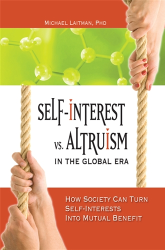From the Beginning of Creation to the Big Bang
The wisdom of Kabbalah explains, that after the initially created desire to receive goes through stages of development, forming the system of the spiritual worlds, a special Partzuf, called Adam, the primordial common soul, was created.
Although this common soul was created without free choice and without the ability to become similar to its Maker, the subsequent “breakage” of this Partzuf created the opportunity for free, independent development, to achieve the purpose creation—to become similar to its Maker.
Therefore, Adam’s shattered soul is our common origin. Being a Partzuf, Adam’s structure was a perfect replica of its parent (corrected) Partzuf. In breaking, Adam extended the structure of the spiritual worlds (worlds of bestowal) to its lowest point—ultimate reception.
In consequence, all that exists in the spiritual worlds exists in our world, as well. For this reason, the same four-stage pattern by which the stages of desire evolved, followed by the four-stage evolution of the spiritual worlds, exists in our physical world. As we explore how our world has evolved, we should keep in mind the desires that evoke and guide it.
Time, as we know it, began approximately 14 billion years ago. From the Kabbalistic, spiritual perspective, the “big bang” was the shattering of Adam’s soul. The reason we see it as a material event is that we see the world through corporeal (self-centered) eyes. If we could see it from the perspective of the force that induced this massive explosion we call “the big bang,” we would see it as an outcome of Adam’s attempt to receive using the last, and greatest desire.
What Is the Difference between Survival of the Fittest in Darwinism and in Kabbalah?
As the original desires evolved in stages, their mundane parallels appeared and corrected one at a time, from the easiest to the hardest. Now, as each desire manifests itself in our universe, Nature, which is synonymous with the Creator, must “teach” it to work so that it contributes to the well-being and sustainability of the universe.
To accomplish this, Nature applies a very similar approach to Darwin’s natural selection principle. In fact, many leading scholars now acknowledge the existence of the natural selection process in the period before the advent of life on earth. Professor Ada Yonath, Nobel Prize laureate in Chemistry, made the following statement in an international convention celebrating the 150th anniversary of the publication of Darwin’s On the Origin of the Species: “The survival of the fittest and natural selection played an important role in the pre-biotic world, even though these qualities are related primarily to the evolution of the species.”
As in Darwin’s natural selection principle, the merit of any new development in Nature is judged by its contribution to the sustainability of its beneficiary. The difference between the Darwinian principle and the Kabbalistic one is the beneficiary: in Darwin’s classic theory, the beneficiary is the species; in Kabbalah, the beneficiary is Nature—the whole of Nature, meaning the Creator.
The World of Egoism and the World of Altruism
If this concept sounds a bit far-fetched, think of a species as part of its ecosystem. In contemporary biology, it is common to view a species in relation to its surroundings, rather than irrespective of it. And since we now know that all ecosystems are connected, it is easy to understand that a disturbance in one system can and will adversely affect the rest of the systems on the planet.
Explaining how Nature shifts its elements from receiving from their environment to giving to their environment, evolutionary biologist Elisabet Sahtouris, PhD, stated in a presentation she gave in November 2005, at a conference in Tokyo, “In your body, every molecule, every cell, every organ and the whole body, has self-interest. When every level… shows its self-interest, it forces negotiations among the levels. This is the secret of Nature. Every moment in your body, these negotiations drive your system to harmony.”
Clearly, the balance and well-being of all systems is imperative for the survival of the human body. As a result, balance is just as imperative for the survival of each of the body’s systems. Today, the view of Nature as a system rather than a collection of separate elements has gained ground among leading researchers. It has led to the emergence of such fields of science as ecology, cybernetics, systems theory, and complexity.
As we have already seen, Kabbalah has always regarded the whole of Nature as a single unit. This wholeness applies not only to earth and to life upon it, but to the entire universe—the corporeal part of it, as well as the spiritual one.
Hence, the same rules that apply to the spiritual world—the world of altruism—apply to our corporeal world—the world of egoism. The difference between our world and the spiritual one is that spiritual desires are all about bestowal, while we are descendants of Adam’s shattering. As such, we are inherently self-centered, at times to the point of obliviousness even to this fact that we are so.
And because we are so self-absorbed, we are unaware of the fact that at its deepest levels, Nature is governed by altruistic rules. The role of Kabbalah is to uncover these rules and introduce them as a way to understand our world and manage it on a new level of awareness.
 “If You’re a Human Being, then You Can Change the World You Live In” is based on the book, Self Interest vs. Altruism in the Global Era: How Society Can Turn Self Interests into Mutual Benefit by Dr. Michael Laitman.
“If You’re a Human Being, then You Can Change the World You Live In” is based on the book, Self Interest vs. Altruism in the Global Era: How Society Can Turn Self Interests into Mutual Benefit by Dr. Michael Laitman.

